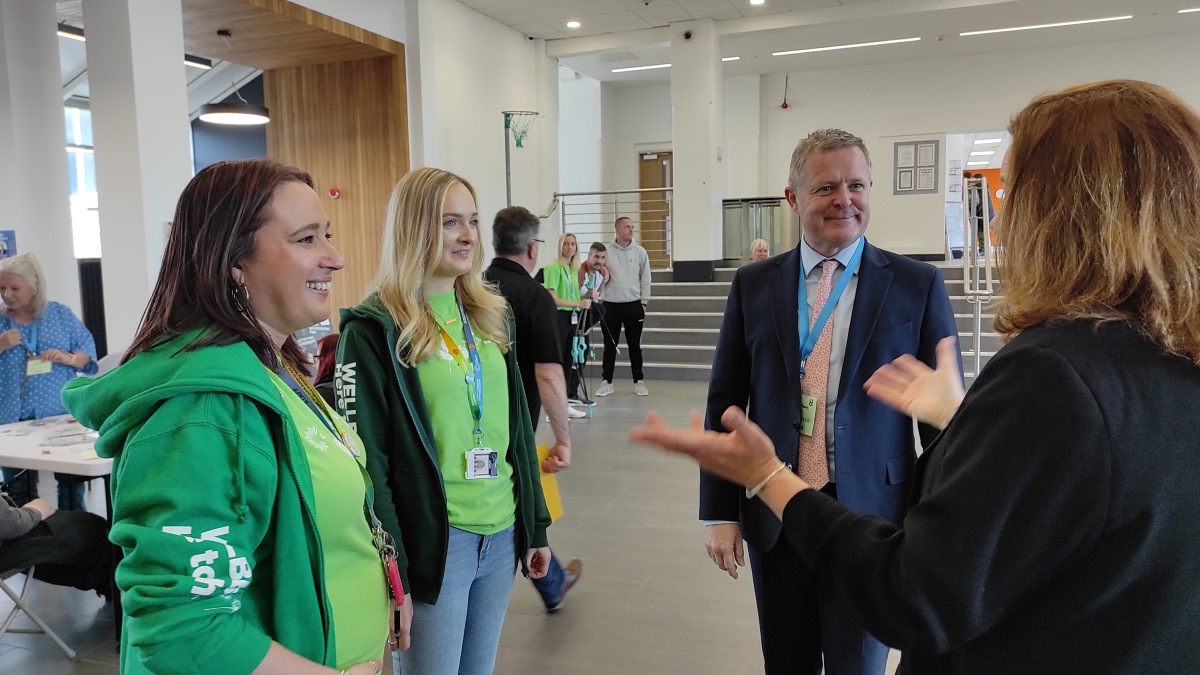Training and education hold the keys to better supporting neurodivergent employees

Research by City & Guilds found that almost a third of neurodivergent employees feel they cannot disclose their condition in the workplace. In this piece, Kirstie Donnelly MBE discusses how employers can create a neuroinclusive environment that better accommodates neurodivergent employees.
Almost one in seven of the UK’s population is neurodivergent – yet neurodivergent employees still don’t get the right support in the workplace. New research by the City & Guilds Foundation reveals almost a third (32%) of neurodivergent employees feel they can’t disclose their condition in the workplace, with 10% of those that do being met with a poor response.
Why are neurodivergent employees hesitant to share details on their condition?
Neurodivergent employees are hesitant to share details on their condition for a number of reasons. These include, but are not limited to, a fear of discrimination or negative impact on their career prospects, a lack of willingness to offer adjustments in past or current workplace settings and a stigma or misunderstanding by others relating to neurodiversity.
It is clear that organisations have further to go, in making it easier for neurodiverse individuals to openly discuss their conditions, with our research revealing that only 23% of HR professionals and 29% of senior leaders have had specific training related to neurodiversity in the last year.
The main struggles for neurodivergent employees to sustain employment
A lack of training and awareness means businesses aren’t adjusting their policies and processes for neurodivergent people and it’s having a significant impact on their professional lives. When asked why they may struggle to sustain employment, 12% of neurodivergent respondents stated work-life balance and 11% said time management were some of their biggest challenges. This reveals the true impact of day-to-day functioning for neurodiverse people and not enough is being done about it.
Working with Do-IT Solutions on this forward-thinking research, Professor Amanda Kirby MBBS MRCGP PhD, CEO of Do-IT Solutions said:
‘Listening to the voices of hundreds of employees and employers has allowed us to gain a more nuanced understanding. This is the start of creating measures that we can use to initiate conversations in all size organisations to create a lasting impact. Awareness is important, but it is only the beginning. Reducing inequity and optimising talent has to be our enduring focus.’
Businesses are responsible for creating a neuroinclusive environment and clearly more could be done to accommodate the day-to-day impacts for neurodiverse employees. There are a number of key steps all organisations can take:
Retraining HR staff
Invest in HR training to ensure their organisation is set up to attract and retain neurodiverse talent. There’s no one size fits all approach, but effective training needs to cover every stage of the application process, starting with reviewing job descriptions for inaccessibility or bias and making sure these are inclusive and fair to all potential candidates.
From there, businesses should understand whether their application and interview processes are neuroinclusive and if not, provide alternative ways for people to apply for jobs and approach the interview setting to ensure they aren’t limiting their applicant pool. 24% of neurodivergent respondents in our research said their biggest challenge with applying for a job was face-to-face interviews and completing job applications. Yet, 53% of employers still haven’t adopted recruitment processes to accommodate neurodivergent traits.
Businesses that give HR teams the right training to understand how they can best support neurodivergent applicants instead of putting the onus on individuals to request specific adjustments, will in turn support a more empowered culture. Only then can businesses ensure any potential barriers to the application process are identified and removed, allowing neurodivergent individuals to enhance their performance in a high-pressure situation.
Educating the whole workforce
Senior leadership may be responsible for leading the change to create an inclusive workplace, but all employees have a role to play in building a positive and respectful environment where neurodivergent people can thrive. Business leaders and HR teams need to educate their wider workforce on the benefits that neurodivergent thinking and cognitive diversity can bring to an organisation. This understanding will create an open and respectful workplace where neurodivergent people can be themselves and deliver their best work.
Creating a mentoring programme
We can’t underestimate the power of support and mentorship. Everyone in the workplace can benefit from having a mentor who knows the company, industry and role inside and out, and can give the guidance needed to take our careers to the next level. The same applies for neurodivergent individuals. Employers should consider setting up a mentorship programme and offering neurodivergent individuals support from someone who can give them clear steps to progress their careers and succeed in the workplace. It’s also down to employers to provide the relevant training where skills might not be up to scratch or in areas where neurodivergent individuals might be lacking in confidence.
Updating business policies
Once employers have the training and education in place, the next step is to establish inclusive policies. Businesses need to review and update all their policies to remove barriers and create a welcoming and inclusive environment for everyone. The key to creating policies that are a good fit for everyone is listening to honest feedback from employees to understand what is already working, or not, and adjust accordingly. It’s important to ensure these policies are available for everyone to access so they know what they’re entitled to and can feel comfortable within their work environment.
Increasing neurodivergent representation across the board
Creating a truly inclusive workplace comes down to having people who understand how neurodivergent people think and recognise the brilliant skills they can bring to the organisation. And that goes beyond training, education, and policies and in fact relies on creating a representative employee base with neurodiverse people at all levels to really embed acceptance of neurodiversity across every corner of the organisation.
Speaking about our Neurodiversity Index report, Chris Quickfall, CEO at Cognassist, a platform that supports employers and educators to deeply understand neurodiversity, said:
“It’s fantastic to see City & Guilds leading the change for neuro-inclusion. We fully support this and believe organisations need to empower all minds, through training; frameworks and cognitive mapping. At Cognassist we advocate the change to ensure everyone can thrive in employment and education. This work leads everyone one step closer to achieving that.”
There’s no denying neurodivergent individuals aren’t getting the right support – the proof is in the data. However, by taking the right steps from awareness to training, education and accessibility, businesses can rest assured they’re empowering prospective and current neurodivergent employees to contribute to the long-term growth and success of any organisation.












Responses